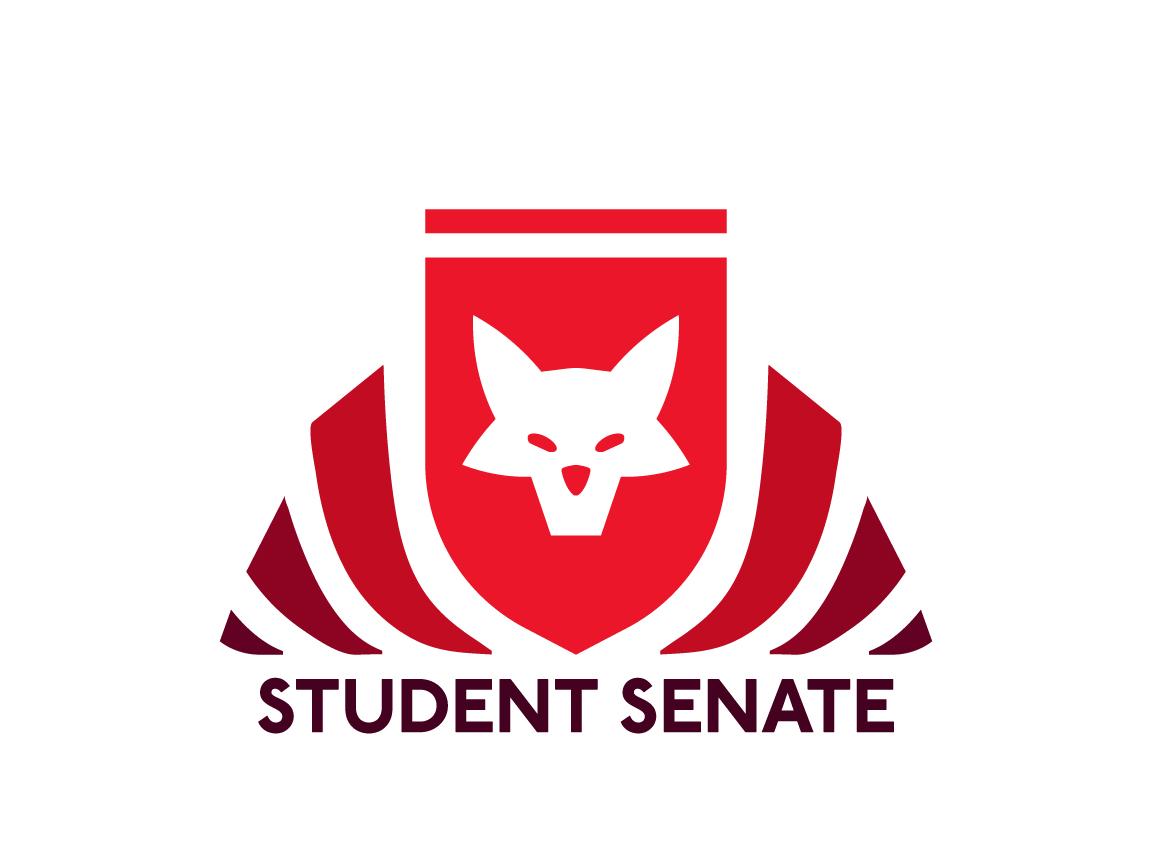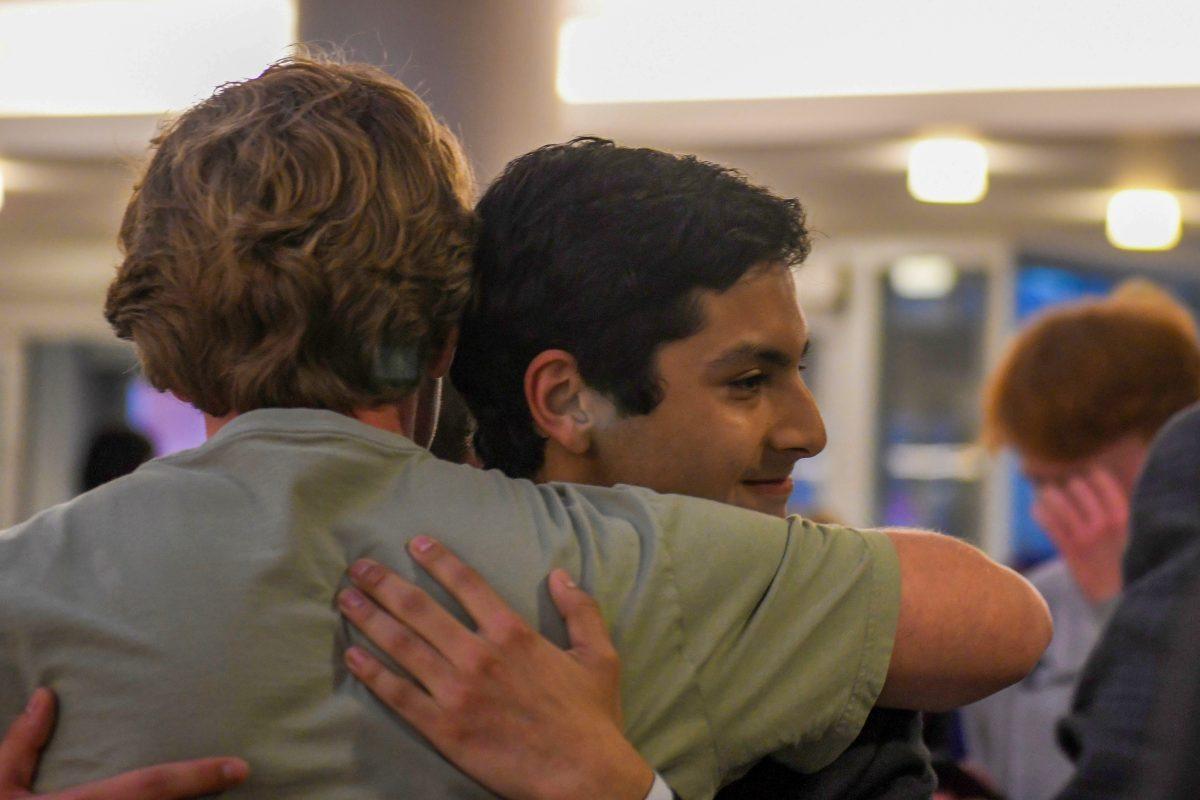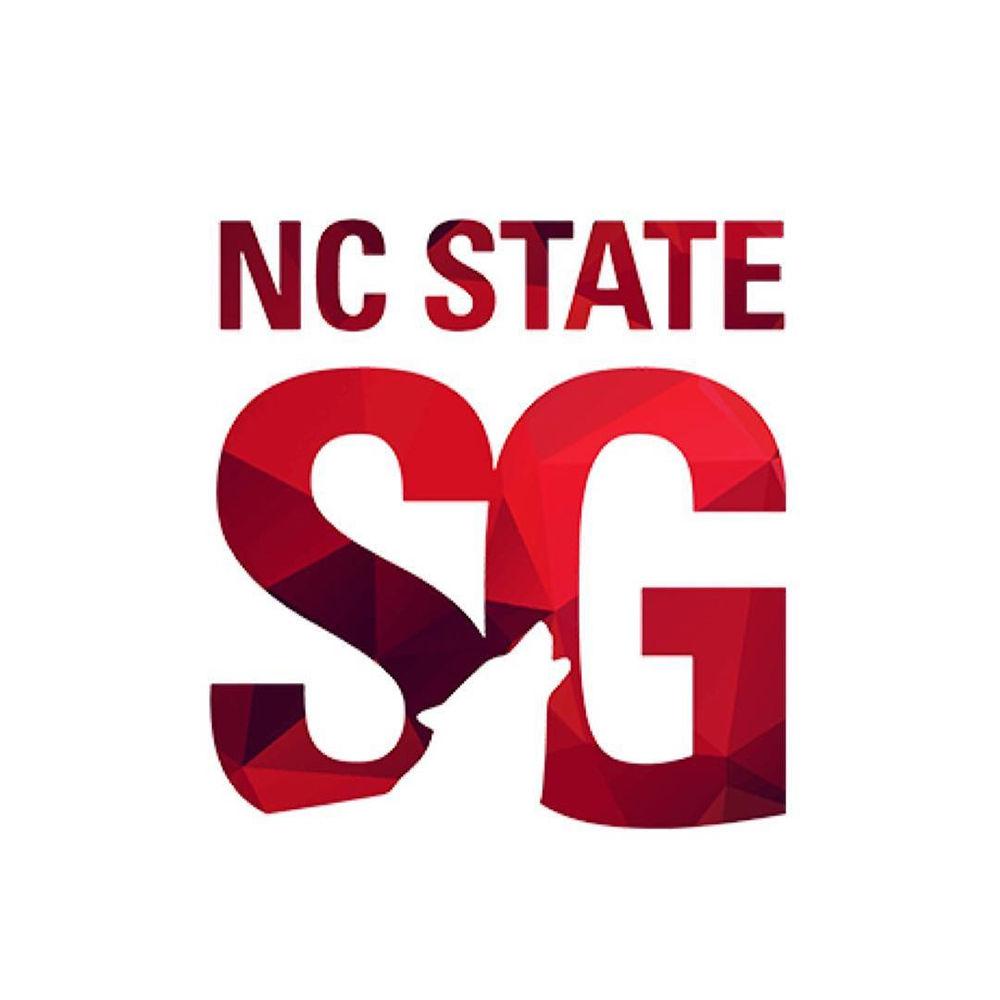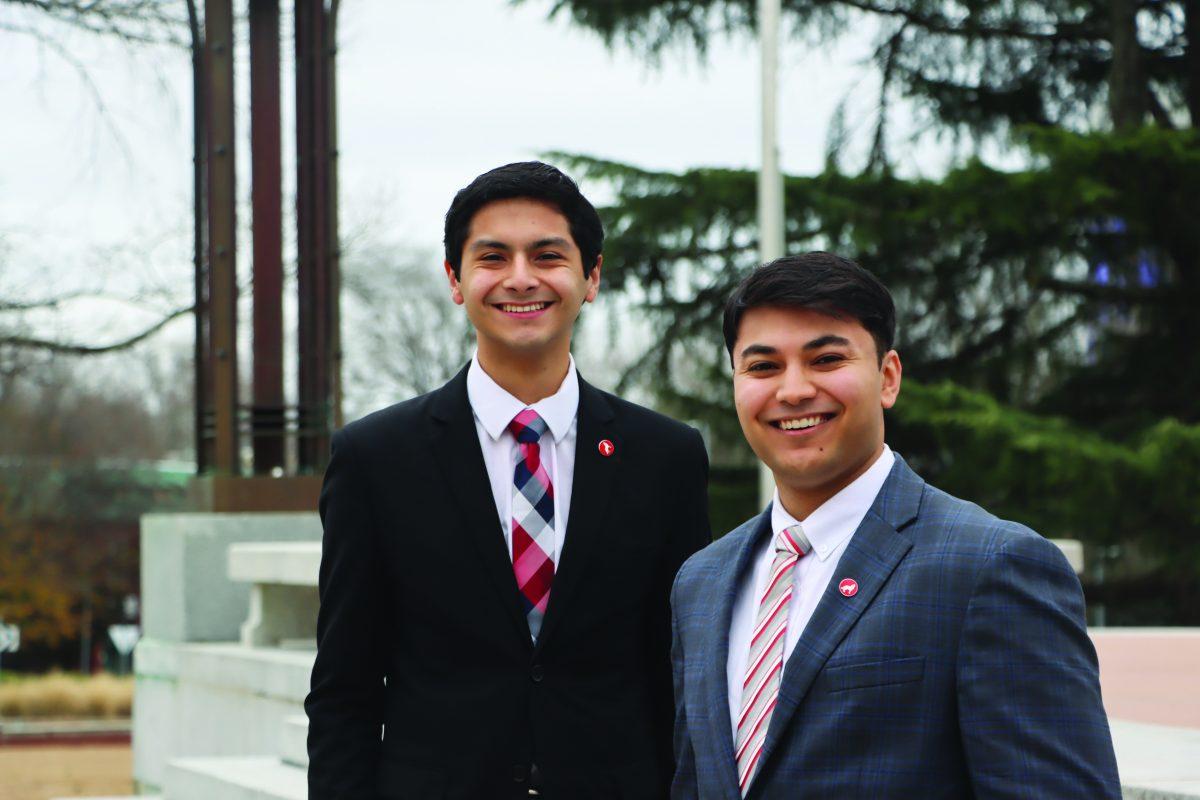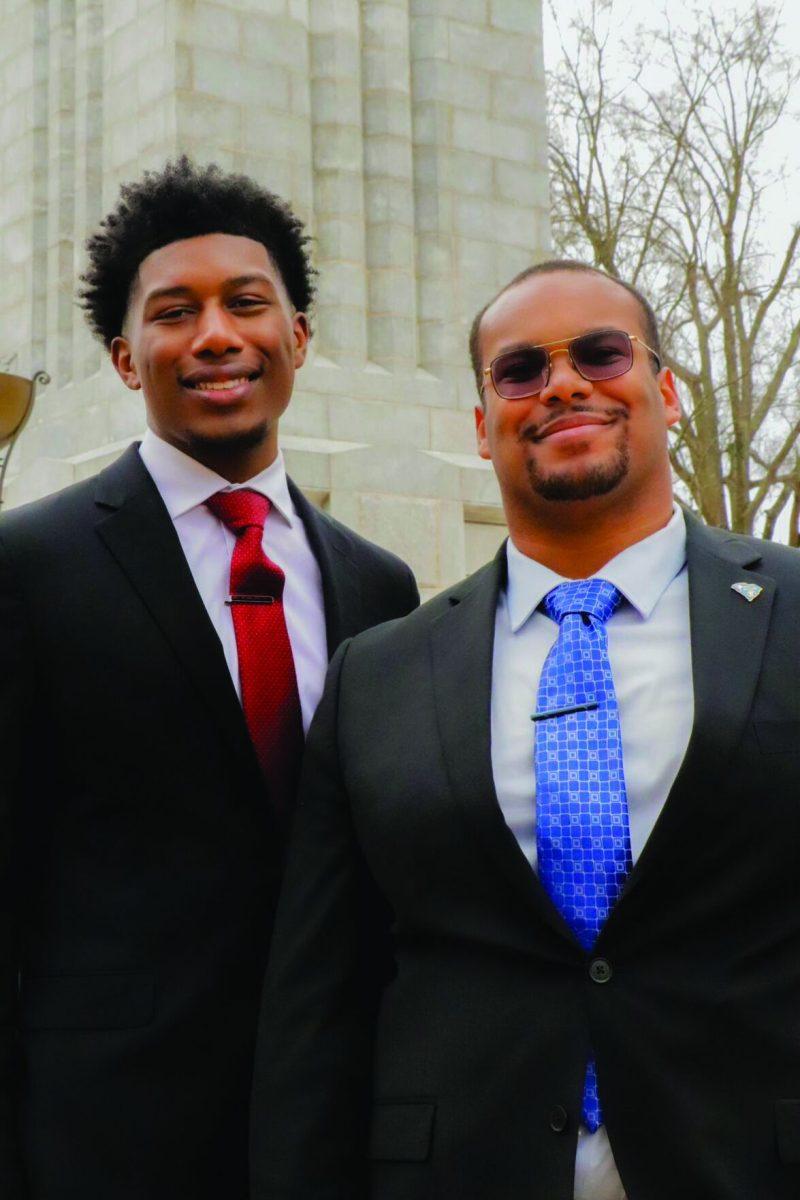The Graduate Student Association and the Office of Institutional Equity and Diversity (OIED) debated a student fee increase at the Student Senate meeting on Wednesday, Oct. 5.
OIED is an organization focused on maintaining an inclusive and safe community at NC State. The office offers several programs and initiatives like the Faculty Fellows Program, and campus community centers like the African American Cultural Center and the GLBT Center fall under its domain.
The Graduate Student Association is a group that supports and represents graduate students by encouraging involvement in Student Government and other campus organizations as well as creating programs for research and funding. Adam Schmidt, a graduate student in civil engineering, said the association is a place where students can come together to talk about what problems they’re having.
“We collaborate with colleagues in Student Government and Grad Workers Union and across campus to try to get your graduate student interests heard and addressed,” Schmidt said.
SR 39 – Student Center Programming, Office of Institutional Equity and Diversity Fee Recommendation Act was up for a second reading during the meeting and was discussed throughout. SR 39 recommends a $2.54 increase in student fees. Lisa LaBarbera-Mascote, senior director of campus community centers, said the $2.54 increase in student fees would go towards supporting market rate adjustments and inflation for staff salaries.
“The staff have already received market rate adjustments,” LaBarbera-Mascote said. “So we’re asking for this fee for inflationary reasons to help us cover the cost of paying our staff.”
According to Miles Calzini, a graduate student in chemistry and student senate president, student fees are set amounts of money that go towards paying off different expenditures made by the University. This year, $23 in student fees were dropped. This fee went toward an expansion in Carmichael Gym from a few years ago.
Offices on campus generally get revenue in three primary ways: from the state, private donations and fees. Calzini said fee revenue makes up most of these offices’ funding.
“They receive very little from the state if anything,” Calzini said. “They do have cash reserves, so money that adds up over time that they don’t allocate, and so that is a place where they could pull from if needed, but that is a limited resource and will run out very quickly. … As far as endowments go, [they are] directed donations, [they] would be something that would be directed by a donor to someone else to say I want to give money to OIED. And so unless that has happened, they don’t get any of that either.”
LaBarbera-Mascote said OIED gets about 51% of its revenue from the state, 45% from student fees and a small portion from the campus security fee.
Many graduate students get their tuition paid for through an assistantship where they teach, do research or other jobs on campus. Calzini said paying student fees is difficult for graduate students because they don’t make enough money to be able to pay for them. According to Calzini, some graduate students make as little as $10,000 a year through assistantships at the University. Student fees are around $2,600.
“For [undergraduate students], tuition fees are all part of the cost of attendance and financial aid can cover these expenses,” Calzini said. “But for graduate students who work for the University on assistantships, like your TAs, our tuition is paid as part of our compensation, our fees aren’t.”
Calzini said the University should aim to increase pay for graduate students to make paying fees easier because funding can’t come from anywhere else.
“I believe the most politically viable answer is to raise private student stipends to make these costs less painful; students should not be starving to pay their fees,” Calzini said. “These fees represent essential services that all students including graduate students use, similarly to taxation by the government, as a part of the campus community.”
When asked why OIED can’t pull money from its reserves to support its staff, LaBarbera-Mascote said pulling from the reserves would put them under the recommended amount to be maintained in the reserves within three years.
“We’re thinking about it from a sustainability perspective,” LaBarbera-Mascote said. “Could we pull it from the cash reserve? We can. The cash reserve will wind down, so at some point, we’ll need to figure out how to make that money back up.”
Kevin Joy, a graduate student in mathematics, said he enjoys working for the University, but inadequate compensation doesn’t allow him to focus on that work.
“Your classes are taught by us, your labs are run by us, your tests are graded by us,” Joy said. “The University needs us to run. Cost of living has increased dramatically and our stipends have stagnated. Worrying about affording food, housing, health care and more unfortunately detracks on our ability to fulfill our duties, which includes teaching students. We enjoy helping you succeed. But if we’re having to worry about these things, it detracts from our ability to help you succeed. … Nobody should have to pay to work.”
After SR 39 went through debate, senators voted on the recommendation. SR 39 passed with 25 in the affirmative and 21 in the negative.
At the beginning of the meeting, new senator-elects were sworn in. Elections were held for the approval of appointment of senators and other Student Government officials. These elections are held once first-year senators are sworn in to give them the opportunity to choose their leaders. Positions up for election were Student Senate President Pro Tempore, Student Senate Legislative Secretary, Student Senate Secretaryand Student Senate Sergeant-at-Arms. All previous officers held their positions.
Student Senate unanimously confirmed the appointments of Mya Lowry, a fourth-year studying political science and criminology, as Deputy Chief Justice who serves as a subsidiary to the Chief of Justice and of Adam Womble, a first-year studying engineering, as Association of Student Government’s (ASG) college delegate who serves as alternate to the ASG delegation.
Two additional pieces of legislation were passed.
Legislation Passed
SB 36 – Webmaster and Historian Dual Office Act
The Webmaster and Historian Dual Office Act exempts student government officials in the positions of Webmaster and Historian from the standing rule that they can only serve in one office at a time. SB 36 passed with 43 affirmative votes, zero negative votes and three abstensions.
R 43 – Documented Dreamers Act
R 43 was fast-tracked. The Documented Dreamers Act calls for the support of federal protections for Documented Dreamers, dependents of long-term nonimmigrant visa holders, from the United States Congressional Delegation from North Carolina. R 43 passed with 45 affirmative votes and one negative vote.


